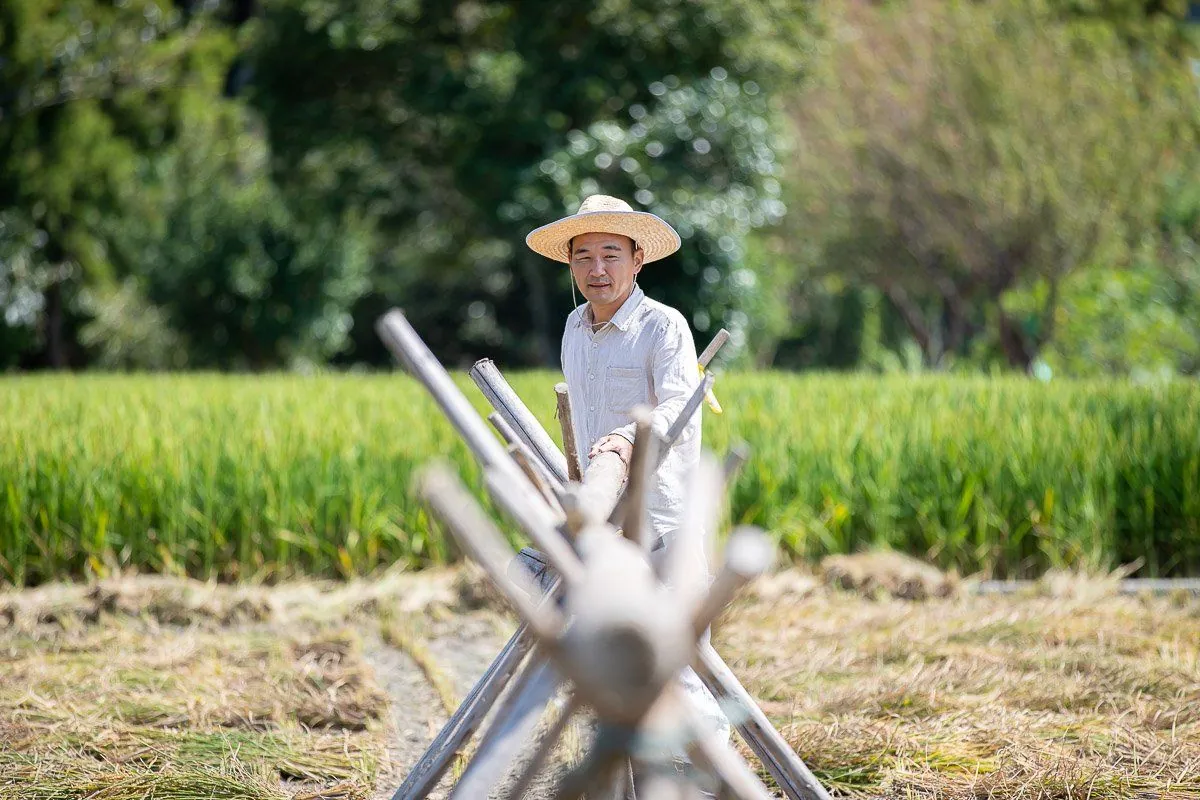Elderly Japanese Farmers Brave Record Heat to Tend Crops
Despite scorching temperatures, Japan's aging farmers continue their work. With nearly 70% of farmers over 65, concerns rise about heat-related health risks and the future of agriculture in the face of climate change.

In the face of unprecedented heat, Japan's agricultural sector faces significant challenges. Yasuyuki Kurosawa, a 77-year-old farmer from Meiwa in Gunma prefecture, exemplifies the resilience of the country's aging agricultural workforce. Despite temperatures soaring to 40°C (104°F) in several cities, Kurosawa continues to tend his diverse crops, including rice, cabbage, wheat, and corn.
Japan's agricultural landscape is unique, with farming accounting for approximately 1% of the economy. Notably, almost 70% of the nation's 1.4 million farmers are aged 65 and above. This demographic trend reflects broader issues in Japan's agricultural sector, which has seen a 60% decrease in commercial farm households since 1990.
The extreme heat poses severe health risks for these elderly farmers. In July 2023, 877 individuals working in farming and fishing were hospitalized due to heat stroke, a nearly fivefold increase from June. The previous year saw 29 farmers succumb to heat-related illnesses. These statistics underscore the urgent need for protective measures.
To combat the heat, farmers like Kurosawa have adopted strategic work schedules. He begins his day at 5:30 a.m., working until noon before taking a break during the hottest hours. His son, 39-year-old Yukihiro, employs additional precautions, consuming large quantities of water and wearing jackets equipped with fans.

The challenges faced by these farmers are compounded by Japan's unique agricultural landscape. With an average farm size of just 2 hectares, significantly smaller than in other developed nations, Japanese farmers must maximize productivity in limited spaces. This constraint, coupled with the country's low food self-sufficiency rate of 38%, highlights the critical role of domestic farmers in ensuring food security.
Climate change presents an additional threat to Japan's agriculture. As Yukihiro notes, "The heat record is broken every year, and I'm anxious about the situation." This concern is well-founded, as climate models predict significant impacts on crop suitability and yields across Japan in the coming decades.
Despite these challenges, innovations in Japan's agricultural sector offer hope. The growth of urban farming, with over 3 million participants, and advancements in vertical farming and robotics demonstrate adaptability. Additionally, traditional practices like the "satoyama" landscape, which integrates agriculture with forest management, may provide sustainable models for the future.
As Japan strives to increase its food self-sufficiency to 45% by 2030, the resilience and adaptability of farmers like the Kurosawas will be crucial. Their perseverance in the face of extreme conditions underscores both the challenges and the enduring spirit of Japan's agricultural community.
"This is something that we cannot avoid, so we must do what we must do even if it's hot."
This sentiment encapsulates the determination of Japan's farmers as they navigate the complexities of climate change, demographic shifts, and economic pressures. As the nation looks to the future, supporting and protecting these essential workers will be paramount in ensuring a sustainable and resilient agricultural sector.


































